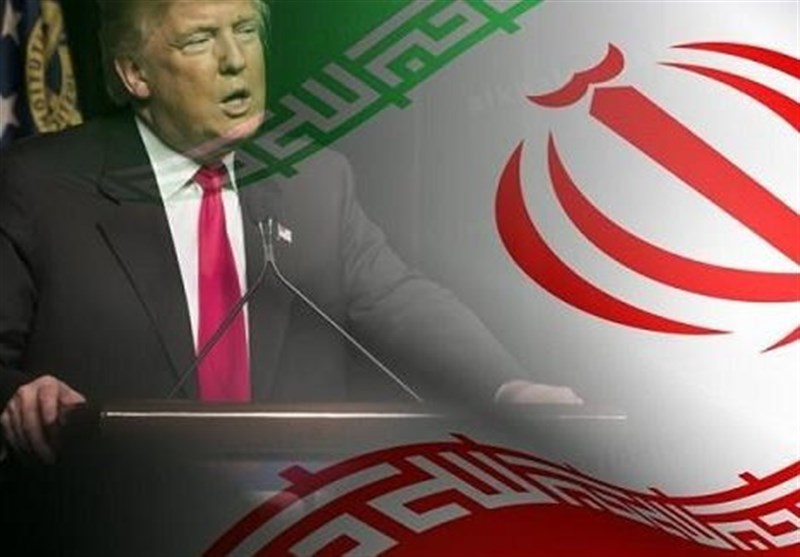
RNA - Trump says he will not waive sanctions against Iran that were lifted as part of the international deal unless his conditions are met, including “Iran changing its destabilizing behavior in the Middle East.”
That the deal is not renegotiable is beyond dispute. That Trump’s stance amounts to desperate attempts and unethical conduct to demonize Iran and undermine the solid multilateral agreement “because the deal makes the US look weak” is equally beyond dispute. The question is which country has to change its destabilizing behavior; which country the world community sees as a rising threat to the Middle East, and whether Washington’s relentless onslaught is fair or foul?
1- The US-led invasion of Iraq in 2003 paved way for emergence of ISIL, which took large swathes of land in the Levant and destabilized the entire planet. Although ISIL has been defeated by the anti-partition alliance of Iran, Syria, Iraq, Russia, Hezbollah, and Popular Mobilization Units, the Trump administration says it will indefinitely keep American military forces there, even in territories that have been cleared of terrorist fighters. Meaning, the US is not there to fight terrorism. According to Secretary of State Rex Tillerson, “US troops will be in Syria to contain Iran and Russia, and to prevent the Syrian government from taking back terrorist-held areas.” No wonder Senator Tim Kaine says “Trump risks acting like a king by unilaterally starting a war.”
2- Western media reports confirm that the US-led coalition regularly attack Syrian government forces and their allies fighting ISIL in the country. The US and its allies have been bombarding what they claim to be ISIL positions since September 2014 without any authorization from the Syrian government or a UN mandate. Their strikes have on many occasions resulted in deaths of pro-government forces and civilian casualties, failing to fulfill their declared aim of countering terrorism and in many cases, and paving the ground for defeated terrorsits to launch an attack on army positions minutes after the US air raids in some others.
3- Russian Foreign Minister Sergei Lavrov has warned against the threat of the Takfiri Fatah Al-Sham Front militant group, formerly known as Nusra Front, as the main source of violence in Syria's Eastern Ghouta region, censuring the US for not taking any serious action against the terror group. Lavrov has also pointed to the ongoing Astana process for the Syrian peace settlement, arguing that the West seeks to undermine the initiative as the process blocks the ongoing US-led efforts to disintegrate Syria. This is while Russia, Iran, and Turkey have been organizing the Astana talks since January 2017. Together, they have been acting as guarantor states for the peace process.
4- The US is planning to open its embassy in Jerusalem Al-Quds in May. This dangerous decision - which reflects the wishes of Israel, with no Palestinian approval or even input - has infuriated the Palestinians, who declare that Washington can no longer play a role as lead mediator in the Middle East peace process. The decision has also sparked outrage across the Muslim world and even Washington's Arab allies. This forced the UN General Assembly on December 21 to overwhelmingly vote in favor of a resolution that calls on the US to withdraw its controversial recognition of the occupied city as the Israeli capital.
5- Trump has just announced America’s “largest ever” tranche of sanctions against North Korea, in an attempt to increase pressure on the nuclear-armed country. This includes further cutting off sources of revenue and fuel, and targeting vessels, shipping companies and trade businesses. With substantial US military presence in the region, it doesn’t take a strategic mind to understand how this could end up; certainly not peace in the Korean Peninsula, as Pyongyang has vowed to keep up the development of its nuclear weapons programs as a deterrent against US aggression.
6- Trump has loosened restrictions on who the US can sell arms. He wants to sell fighter jets, drones, and warships to America’s allies in the Persian Gulf (such as Saudi Arabia and the United Arab Emirates which have been bombing Yemen since 2015) in defiance of human rights and arms control. Again, there is too great a risk of fueling further violence in the Middle East and arms being diverted to be used in terrorist attacks.
7- The Pentagon regime has just released its 2018 Nuclear Posture Review. Its debut demands more attention, because this is a renewed round in the nuclear arms race, one inevitably bringing the world ever closer to the unthinkable - a nuclear war of catastrophic consequences. Since the US has an active stockpile of more than 4,000 nuclear weapons, more than enough to destroy the world several times over, its new nuclear modernization strategy should rouse alarms, and spark UN hearings and global debates.
All this and more should provide enough evidence to conclude that it is war-party Washington, and not Iran, which is a clear and present danger to the world peace. To be sure, the real threat to the Middle East is sitting in the White House - over his decision not to recertify the Iran nuclear deal, and trying to terrify the world about the non-existent threat posed by Tehran. The only evidence the international agreement needs fixing, as Trump claims, is a figment of his fevered brain - along with his closed-minded Saudi-Israeli allies across the pond.
847/940